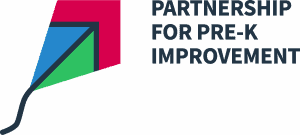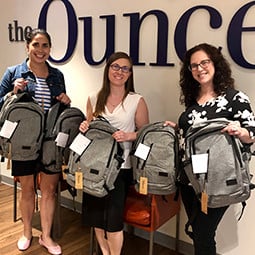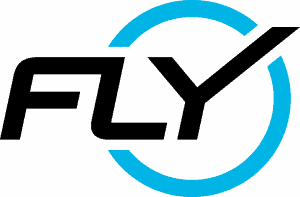 The Partnership for Pre-K Improvement (PPI) was launched in 2017 to learn together with states about how to build quality, equitable pre-K systems that ensure children succeed in school and in life. The initiative’s unique approach fosters partnerships across program, advocacy, and research organizations in support of a common vision for pre-K systems improvement.
The Partnership for Pre-K Improvement (PPI) was launched in 2017 to learn together with states about how to build quality, equitable pre-K systems that ensure children succeed in school and in life. The initiative’s unique approach fosters partnerships across program, advocacy, and research organizations in support of a common vision for pre-K systems improvement.
Through the initiative, three states — Washington, Oregon and Tennessee — are partnering to strengthen the program policies, infrastructure, and resources necessary for high-quality pre-K that will result in improved classroom quality and outcomes for children.

State partners are supported by the following organizations, who work together and in concert with other national and state program, advocacy and research partners. Start Early acts as the backbone organization, facilitating collaboration.
- Start Early engages state government leaders to create strategic plans to build the system capacity and infrastructure needed for continuous improvement of quality pre-K.
- The Alliance for Early Success supports advocacy organizations to build advocacy capacity to ensure the policies and resources essential to quality pre-K are in place.
- Cultivate Learning at the University of Washington engages local researchers to build research-practice partnerships with states and generate data for continuous quality improvement of pre-K.
Leaders in each state have made meaningful improvements to their systems, including data, professional learning, and instructional leadership infrastructure that contribute to continuous improvement of pre-K. Additionally, local organizations in each state have built strong partnerships across program, advocacy and research to sustain pre-K systems improvements long into the future.
Based on this learning, PPI partners are collaboratively creating tools and generating knowledge to help other states and communities apply this program, advocacy, research approach and thereby continue improvement beyond the life of the project.

 The Partnership for Pre-K Improvement (PPI) was launched in 2017 to learn together with states about how to build quality, equitable pre-K systems that ensure children succeed in school and in life. The initiative’s unique approach fosters partnerships across program, advocacy, and research organizations in support of a common vision for pre-K systems improvement.
The Partnership for Pre-K Improvement (PPI) was launched in 2017 to learn together with states about how to build quality, equitable pre-K systems that ensure children succeed in school and in life. The initiative’s unique approach fosters partnerships across program, advocacy, and research organizations in support of a common vision for pre-K systems improvement.




